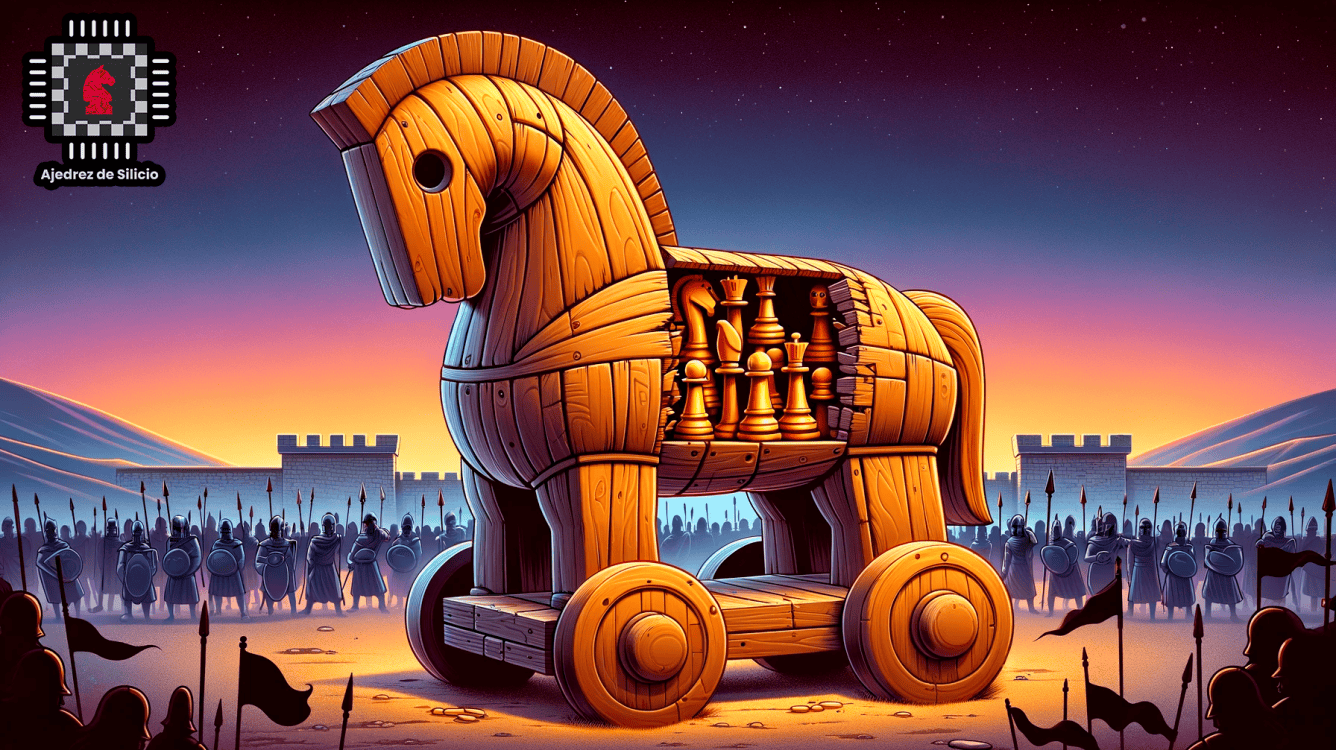
Overconfidence: The Lesson of Troy in Chess

The Trojan Horse is one of the most emblematic stories of cunning and deception in Greek mythology. After a seemingly endless war against the city of Troy, the Greeks devised a plan as ingenious as it was bold. They built a huge wooden horse, hiding their best warriors inside. They presented this creation as a peace offering, and the Trojans, convinced of their victory, accepted it without suspecting the trap. In the darkness of the night, the Greek warriors emerged from the horse and opened the city gates, leading to the devastating end of Troy.
This episode highlights the overconfidence of the Trojans. Blindly believing in their triumph and the apparent surrender of their enemies, they let down their guard. This overconfidence, this inability to question and see beyond the apparent reality, was their downfall. They underestimated their adversaries and paid a very high price for it.
In chess, we find a similar lesson. This science sport is not only a battle of intelligence and strategy, but also a constant reminder of the importance of not underestimating our opponent. On the board, as in life, overconfidence can be our greatest enemy. Every move must be calculated, every plan reviewed, and we must never consider a game won until the last move has been played. Chess teaches us to always be alert, to think about the consequences of each play, and to respect our opponent, no matter how favorable our position seems. A clear example of this happened to the strong player Jeroen Piket in 1997. Let's see:
We do not know exactly what led to Piket's terrible defeat; however, returning to the title of this article, just as the Trojans learned the hard way, chess constantly reminds us that a moment of overconfidence can change the course of any battle, no matter how secure it may seem. Humility, constant analysis, and the ability to adapt to changing situations are valuable lessons that chess, like the story of the Trojan Horse, offers us.